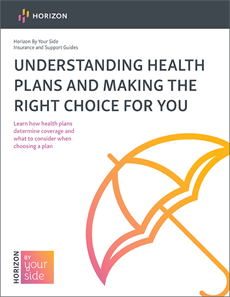USE and IMPORTANT SAFETY INFORMATION
What is the most important safety information I should know about PROCYSBI?
PROCYSBI can cause serious side effects, including:
- Skin, bone, and joint problems. People treated with high doses of cysteamine bitartrate may develop abnormal changes of their skin and bones, such as stretch marks, bone injuries (such as fractures), bone deformities, and joint problems. Check your skin while taking PROCYSBI. Tell your doctor if you notice any skin changes or problems with your bones or joints. Your doctor will check you for these problems.
- Skin rash. Skin rash is common with cysteamine bitartrate and may sometimes be severe. Tell your doctor right away if you get a skin rash. Your dose of PROCYSBI may need to be decreased until the rash goes away. If the rash is severe, your doctor may tell you to stop taking PROCYSBI.
- Stomach and bowel (intestinal) problems. Some people who take other medicines that contain cysteamine bitartrate may develop ulcers and bleeding in their stomach or bowel. People treated with PROCYSBI may also develop abnormal swelling and narrowing of the large bowel which must be treated promptly. Tell your doctor right away if you get abdominal pain, bloody or persistent diarrhea, bloating, nausea, vomiting, loss of appetite, vomit blood, poor weight gain or weight loss.
- Central nervous system symptoms. Some people who take other medicines that contain cysteamine bitartrate develop seizures, depression, and become very sleepy. The medicine may affect how your brain is working (encephalopathy). Tell your doctor right away if you develop any of these symptoms.
- Low white blood cell count and certain abnormal liver function blood tests. Your doctor should check you for these problems.
- Benign intracranial hypertension (pseudotumor cerebri) has happened in some people who take immediate-release cysteamine bitartrate. This is a condition where there is high pressure in the fluid around the brain. Your doctor should do eye examinations to find and treat this problem early.
Tell your doctor right away if you develop any of the following symptoms while taking PROCYSBI: headache, buzzing or “whooshing” sound in the ear, dizziness, nausea, double vision, blurry vision, loss of vision, pain behind the eye, or pain with eye movement.
What is PROCYSBI?
PROCYSBI (cysteamine bitartrate) delayed-release capsules and delayed-release oral granules is a prescription medicine used to treat nephropathic cystinosis in adults and children 1 year of age and older. It is not known if PROCYSBI is safe and effective in children under 1 year of age.
Do not take PROCYSBI if you are allergic to penicillamine or cysteamine.
Before taking PROCYSBI, tell your doctor about all your medical conditions, including if you:
- drink alcohol.
- have a skin rash or bone problems.
- have or have had stomach or bowel (intestinal) problems including ulcers or bleeding.
- have a history of seizures, lack of energy, unusual sleepiness, depression, or changes in your ability to think clearly.
- have liver or blood problems.
- are pregnant or plan to become pregnant. It is not known if PROCYSBI will harm your unborn baby. Tell your doctor right away if you think that you are pregnant. Talk with your doctor about the benefits and risks of taking PROCYSBI during pregnancy.
- are breastfeeding or plan to breastfeed. You should not breastfeed during treatment with PROCYSBI. Talk with your doctor about the best way to feed your baby if you take PROCYSBI.
Tell your doctor about all the medicines you take, including prescription and over the counter medicines, vitamins, dietary and herbal supplements. Know the medicines you take. Keep a list of them to show your doctor and pharmacist when you get a new medicine.
What should I avoid while taking PROCYSBI?
- Do not drive or operate machinery until you know how PROCYSBI affects you. PROCYSBI can make you sleepy or less alert than normal.
- Do not drink alcohol if you take PROCYSBI. Drinking alcohol while taking PROCYSBI may change how PROCYSBI works and may cause an increase in the amount of PROCYSBI in your blood that may cause serious side effects.
What are the possible side effects of PROCYSBI?
PROCYSBI can cause serious side effects, including:
-
See "What is the most important information I should know about PROCYSBI?"
The most common side effects of PROCYSBI include: vomiting, nausea, stomach (abdominal) pain, pink eye, diarrhea, cold, tiredness, flu, headache, problems with body salts or electrolytes, infection of ear, nose or throat, joint pain.
These are not all the possible side effects of PROCYSBI. Call your doctor for medical information about side effects. You may report side effects to FDA at 1-800-FDA-1088.
For additional important safety information, click here for the Patient Package Insert and discuss with your doctor.




